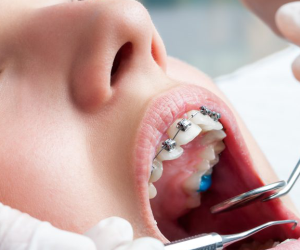
Signs You Need to See Your Dentist
Signs You Need to See Your Dentist
Your dental health can often fall to the wayside, but big problems can arise if you ignore your mouth.
Here are five easily recognizable signs you need to see your dentist:
Experienced Lady Dentist in Sharjah
The most obvious point: You have pain. When you experience a toothache, it can seem like your world is consumed by it. Even then, many people try and “wait it out” before going to see a dentist. Do not fall into this habit – even if the pain subsides, the cause of the pain could still remain.
Bleeding or swollen gums. Let’s address bleeding gums first: does any other part of your body bleed when you rub it or gently scratch it? No. Neither should your gums. If this is happening to your gums, you may have an issue with inflammation, which can lead to serious periodontal problems later. If your gums are swollen, you may be experiencing an even more advanced state of inflammation. See your dentist as soon as possible if this is happening to you. The good news for you is that we have a periodontist on staff to treat these types of issues specifically!
If you start noticing that hot, cold or sweet foods and drinks are causing you pain, call your dentist. Plaque build-up, cavities or problematic fillings can all cause sensitivity in your teeth, which need to be addressed by a professional!
Bad breath. Have you noticed that your friends keep a safe distance when they’re talking to you? You may want to stop by MFD for a quick check-up. You might have halitosis. Caused by a large variety of things, such as, but not limited to, diet, sinus infections or gum disease, halitosis can make your breath smell veryAlthough things like mouthwash may mask it temporarily, there is a larger problem that your dentist can help you solve.
Pregnancy or other medical conditions you’re being treated for (such as radiation, chemotherapy, hormone replacement, etc.). Many medical conditions, as well as pregnancies, can cause big changes in your hormone levels or in your body’s chemistry in general (especially with heavy doses of medication). For example, gingivitis is common during pregnancies and periodontal problems during pregnancy have been associated with lower birth weights. Avoid unplanned dental emergencies by coming into the dentist more frequently.
You should get in to see a dentist as soon as possible if any of these apply to you, but we must also highlight the fact that just because you’re not experiencing any problems, doesn’t mean you should skip your bi-annual visits. These signs you should see your dentist allows us to keep your mouth healthy and to establish a good baseline for your oral health.
